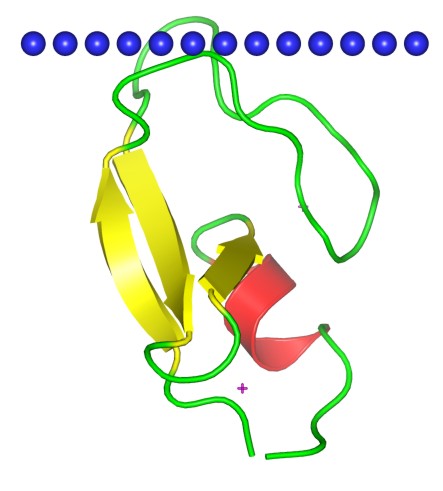Based on the comprehensive membrane protein production platform established through years of experience, scientists from Creative Biostructure provides custom Mempro™ C1 domain-containing protein production services using plant-based expression system. Our patent plant-based expression system can best preserve the native conformation of target membrane proteins.
Mempro™ plant-based protein production platform is a renewed system for membrane protein production. The key characteristics of our platform are animal-free, low endotoxin, and low protease activity. Most notably, animal-free recombinant membrane proteins are particularly crucial for customers concerned with experimental variables caused by trace animal components or mammalian pathogens.
Creative Biostructure has extensive expertise in high-yield C1 domain-containing protein production based on various types of host plants including Nicotiana benthamiana (tobacco), Medicago rativa (alfalfa), Arabidopsis thaliana (A. thaliana), potato, maize, barley and lettuce. We can perform two different strategies for producing recombinant membrane protein in plants: stable transformation system and transient expression system.
Protein kinase C conserved region 1 (C1) domains, also termed phorbol esters/diacylglycerol binding domains, can bind the lipid second messenger diacylglycerol (DAG), as well as the phorbol esters (analogues of DAG). It is well known that C1 domain is a cysteine-rich domain, which is present in numerous signaling families, including chimaerins, RasGRPs, PKDs, diacylglycerol kinases (DGKs) and others. C1 domain consists of around 50 amino acids and is involved in the recruitment of proteins to the membrane.
 Figure 1. The structural model C1 domain of unc-13 homolog A. (OPM Database)
Figure 1. The structural model C1 domain of unc-13 homolog A. (OPM Database)
With the Mempro™ plant-based protein production platform, Creative Biostructure is capable of expressing, isolating, purifying and crystallizing C1 domain-containing proteins to facilitate the study of their biological functions. Additionally, misfolding, aggregation, inactivity, poor stability, high endotoxin and solubility, etc. are the common difficulties encountered in cell-based expression system. These difficulties can be overcomed in the renewed plant-based expression system.
Creative Biostructure can also provide Mempro™ plant-based virus-like particles (VLPs) production services, Mempro™ animal-free recombinant protein production services and Mempro™ membrane protein production services. Please feel free to contact us for a detailed quote.
References:
A. Wiktorek-Smagur, et al. (2012). Green way of biomedicine – how to force plants to produce new important proteins. Transgenic Plants-Advances and Limitations, Chapter 3. doi: 10.5772/1409.
F. Colón-González and M. G. Kazanietz (2006). C1 domains exposed: from diacylglycerol binding to protein-protein interactions. Biochim. Biophys. Acta., 1761(8): 827-837.
F. Junge, et al. (2008) Large-scale production of functional membrane proteins. Cellular Mol. Life Sci., 65 (11): 1729-1755.
J. Das and G. M. Rahman (2014). C1 domains: structure and ligand-binding properties. Chem. Rev., 114 (24): 12108–12131.